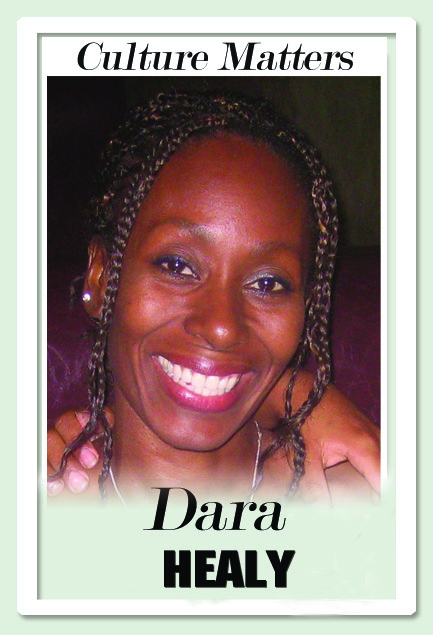Riddim and power of our spoken word

Culture Matters
My name is Alexa
Your virtual assistant
Ask me anything...
Alexa!
What is the difference
Between a racist
And a robot?
Perhaps...
That a robot can distinguish
Between a person
And a cockroach
While a racist thinks
That all brown bodies
Look like something
To crush
With a shoe
Or a knee
On a neck
Extract – Alexandra Stewart, winner, First Citizens National Poetry Slam 2020
ATTITUDE, anger, angst. Spoken word is not for the casual observer, the fence sitter or the lyrical doubter. Gifted artists cut you with poetic knives, words turning into daggers that make you bleed – on the inside. The ancient art of telling a story. In the 21st century, the art transforms, yet, stories are told in a rhythm that goes back centuries.
This year, Alexandra Stewart, a 22-year-old, won the First Citizens Spoken Word Slam Competition, a main component of the Bocas Lit Fest. Instructively, the age of the oldest competitor did not go beyond 35. What is it about spoken word that attracts young people? How can we harness its power to help growing numbers of youth battling challenges such as depression, abuse and a life of crime?
In TT, spoken word has a proud lineage. In 1970 Lancelot Layne opened a portal with Blow Way, a strident mix of African drums, rhyme, call and response: “And if a man want to set all standards for you to follow/To he wha you say/Blow way!” Lasana Kwesi and Cheryl Byron deepened the exploration between performance poetry and socio-political issues. Prof Funso Aiyejina, co-founder of the Bocas Lit Fest and chief judge for the competition, also highlights veterans like Brother Resistance. Interestingly, he includes calypsonian Shadow, who used words and rhythm to weave a story and deliver an electric performance, while standing almost completely still – “Bom bom bi di bom, bom...”
Indeed, Aiyejina reminds about the regional influence of performance poetry going back to the 1960s. Kamau Brathwaite’s “insistent rhythms” addressed post-colonial influences on his homeland Barbados and the wider Caribbean. In Jamaica, dub poets Mickey Smith, Linton Kwesi Johnson and Mutabaruka were revolutionising the performance space with their style that was deliberately raw and in Jamaican patois. “Mi daughter bwaifriend (boyfriend) name is Sailor and him pass through the port like a ship/more grand pickney fi feed/but the whole a we need/what a night what a plight mi cyaan get a bite/mi life is a stiff fight and mi cyaan believe it...”
The subjects that preoccupied the young people in this poetry competition were no less troubling. Finalist Nia Thompson sent a message to politicians about crime and poverty in her community. “Poverty – a dice of depressive rounds, roll/No lessons no school, no paint no art/No tools.../Sufferers doh need one shot, just a real life.” Kevin Soyer, who placed second, addressed depression and suicide. “Whether you thinking/of taking that razor to your own veins/Or those of your dreams and aspirations/Please conjure up some patience/and breathe.” Others spoke of childhood abuse, trauma and losing a loved one to HIV.
Aiyejina confirmed that many of the poems dealt with real-life experiences. “Most of the people who gravitate towards spoken word do not often have the opportunity to express their emotions. That space gives them the freedom to talk about themselves and the way that they see the world without anybody judging them.”
In the US, the slam format became popular in the 1980s. Jazz clubs and cafes allowed performers to showcase their talent, devoid of pretensions. It soon became clear that the poetry was serving another purpose. “Poetry was just something you wrote in journals for therapy. Then...it was like, ‘Oh there’s a mic, there’s a stage, there’s an audience that wants to hear these things. Out came the journal.” Gradually, educators around the world incorporated Spoken word into their work with vulnerable youth.
At home, a key concern is sustainability. Another is relevance. “Ah was 14 when ah chop ah man for meh mother.” So declares third-place winner Ahmad Abdullah-Muhammad. How does an educator engage with a boy who confesses something like this, or with the young girl who is brilliant at gambling but refuses to study? We need artists like Alexandra and Kevin and Nia to bolster our education system. We need to reach into what Kamau Brathwaite called local “kingdoms of the word.” We need to look beyond competition to fully impact society with the riddim and power of our spoken word.
Dara E Healy is a performance artist, communications specialist and founder of the NGO, the Indigenous Creative Arts Network – ICAN


Comments
"Riddim and power of our spoken word"